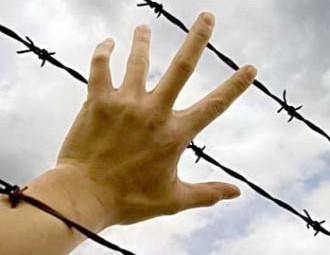UN Human Rights Council discussed the situation with human rights in Belarus

Special attention was given to the situation with political prisoners.
A number of meetings and events on the situation with human rights in Belarus were organized by the International Federation for Human Rights (FIDH) and took place in Geneva on March 6 – 7, 2014.
Participants in the round table “Social and Economic Rights in Belarus are Violated as Systematically as Political and Civil Rights” concentrated on violations of freedom of association, freedom of assembly, and the election process, noting in particular the situation with political prisoners. They also presented a report by FIDH and the Human Rights Centre Viasna entitled “Forced Labour and the Pervasive Violations of Workers’ Rights in Belarus”. This event was supported by Human Rights Watch, Human Rights House Network, Amnesty International, the Human Rights Centre Viasna, and the Belarusian Human Rights House in Vilnius.
Miklos Haraszti, the UN Special Rapporteur on the situation of human rights in Belarus, opened the presentation. In his speech, he stressed that the observance of economic and social rights is inextricably linked with political and civil rights. When citizens are deprived of freedom of association and, accordingly, of the right to defend their rights collectively, and when citizens are punished for even the slightest disagreement with the regime, widespread violations in the labour sphere are unavoidable and affect large strata of the population. In turn, these violations lead to large-scale violations of political and civil liberties, such as freedom of movement and freedom of assembly, and discrimination based on political beliefs (firing and dismissal of activists, etc.). The UN Special Rapporteur thanked FIDH and Viasna for their “extremely timely and most serious research that uncovered shocking evidence previously unknown.”
Valiantsin Stefanovich, deputy chairman of the Human Rights Center Viasna presented the report’s main conclusions after giving a brief overview of the situation with human rights in general and with political prisoners specifically. Stefanovich spoke about the situation with economic and social rights in Belarus, making special note of the use of forced labour in the army and with the use of committed persons and asocial elements held in the penal system and in medical labour centers, as well people forced to work during Saturday community work days. He also noted that the evidence presented in the report was evaluated by the UN Committee on Economic and Social Rights. The Committee demanded fundamental changes in practice and at the law-making level from Belarus.
Based on his own experience, Oleg Stakhayevich, chairman of the independent union organization at the Granit Company (Mikashevichy, Belarus) spoke about the problems involved in forming independent union organizations in Belarus. It should be recalled that eight union leaders in this movement and members of their families were fired, and dozens of union members were subjected to pressure and intimidation.
Sixteen government delegations from European countries and the United States, intergovernmental organizations (the EU, the Council of Europe, the International Criminal Court), and non-governmental organizations were present at the event. At the beginning of the event, Mikhail Khvostov, the Belarusian ambassador to the UN, who presented a report by the Belarusian Ministry of Foreign Affairs on violations of human rights committed in the EU, Canada, and the United States, approached the organizers. But he openly ignored the Belarusian activists who were present.
The delegation of Belarusian civil activists also held a number of bilateral meetings with representatives of UN government delegations, with whom it discussed the situation with human rights in Belarus and preparations for the session of the UN Human Rights Committee to be held in June, at which there are plans to adopt a resolution and hold a vote on extending the mandate of the UN Special Rapporteur on the situation with human rights in Belarus.
According to FIDH
-
03.01
-
07.10
-
22.09
-
17.08
-
12.08
-
30.09



























